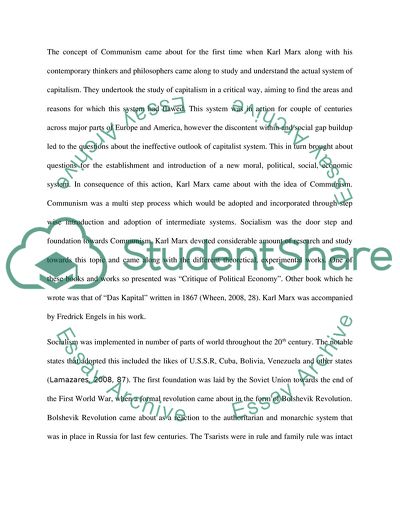Cite this document
(The Theory and Practice of Communism Coursework Example | Topics and Well Written Essays - 2500 words, n.d.)
The Theory and Practice of Communism Coursework Example | Topics and Well Written Essays - 2500 words. https://studentshare.org/politics/1827218-communism-theory-vs-practice
The Theory and Practice of Communism Coursework Example | Topics and Well Written Essays - 2500 words. https://studentshare.org/politics/1827218-communism-theory-vs-practice
(The Theory and Practice of Communism Coursework Example | Topics and Well Written Essays - 2500 Words)
The Theory and Practice of Communism Coursework Example | Topics and Well Written Essays - 2500 Words. https://studentshare.org/politics/1827218-communism-theory-vs-practice.
The Theory and Practice of Communism Coursework Example | Topics and Well Written Essays - 2500 Words. https://studentshare.org/politics/1827218-communism-theory-vs-practice.
“The Theory and Practice of Communism Coursework Example | Topics and Well Written Essays - 2500 Words”. https://studentshare.org/politics/1827218-communism-theory-vs-practice.


